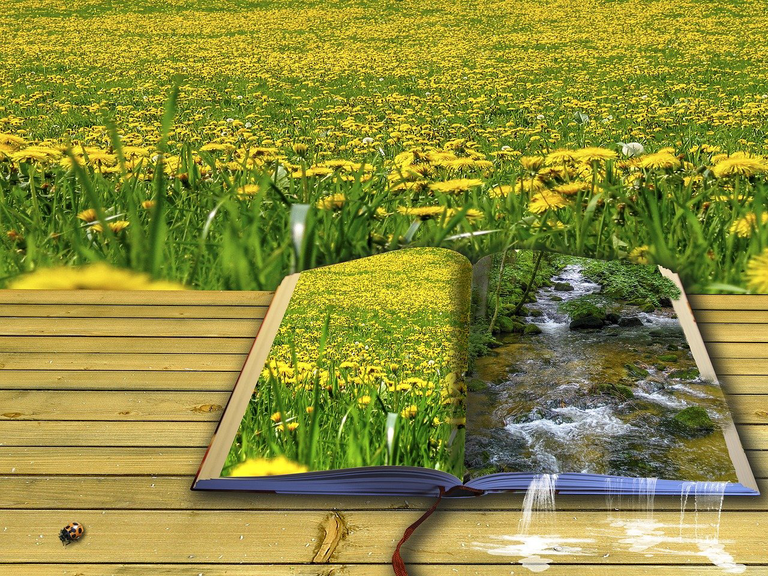The Philosophy of Poetry: A Journey Through Words and Souls
Long time ago In a small village of idak okpo where the streets were filled with people moving up and down because of the shining street lights and beautiful trees. There lived an old poet named Amara Her house was a small but beautiful cottage on the edge of a sprawling meadow, it was a sanctuary filled with words and wisdom. Every evening, as the sets she would sit on her stool, having her pen in hand, and let her thoughts flow onto the pages of her diary.
Amara believed that poetry was more than just a mere sequence of words that are nicely collected together, she tried to explain that poetry was a profound exploration of the human soul. To her, poetry was the language that can only be understood by the heart, a medium through which emotions, thoughts, and experiences were allowed to be put into their purest form. "Poetry," she often used to tell her apprentice, a young aspiring writer named Chioma, "is the bridge between the earthly and the supernatural realms. It explains the essence of life in ways that ordinary language cannot.
Chioma, wide-eyed, ear open and eager, will always give her full and undivided attention to Amara as she speaks about the philosophy behind poetry. "But what gives poetry its power?" she asked one evening, her curiosity piqued.
Amara couldn't help but smile at her with eyes twinkling with the wisdom she has gained over the past of years. "The power of poetry lies in its ability to evoke emotions and provoke thought. This power moves beyond the literal and has moved into the realm of the metaphorics, where every word carries a weight that is far greater than its meaning Poetry is a dance between the tangible and the intangible, where meaning is not just read but felt."
As the weeks passed, Amara introduced chioma to the wonderful works of renowned poets. She spoke of William Wordsworth, whose verses explain the sublime beauty of nature, and Emily Dickinson, whose perception about poetry went deeper into the human soul. She recited lines from Rumi, the Sufi mystic whose words were impacted with spiritual longing, and from Langston Hughes, whose powerful verses gave voice to the struggles and dreams of the African American community.
Through these renowned authors, Chioma began to understand that poetry was not just aligned to any single form or subject. It was a vast, boundless art that could contain love, loss, joy, despair, nature, and the cosmos. Each poet brought their unique thoughts and their own stories of the human experience, adding value to the power of poetic expression.
One beautiful morning, as they strolled through the meadow, Amara posed a question to Chioma "What do you believe is the meaning of poetry?"
That was a surprising question, as Chioma thought for a moment before answering. "I think poetry is a way to make sense of the world and our place in it. It's a means of connection, a way to express what we feel inside with others. Poetry is both a mirror and a window, it reflects our own experiences and opens us up to the experiences of others.
Beautiful as Amara nodded her head, "Indeed, poetry is a mirror and a window. It is also a refuge, a place where we can find peace and comfort in times of troubles and joy in moments of sorrow. Through poetry, we overcome our deepest fears and celebrate our greatest triumphs. It is the true definition of the resilience of the human spirit."
As the seasons changed, Chioma's own poetry began to blossom. She wrote of the gentle stories of the idak okpo street and the willow trees by the river, the silent grief of losing a loved one, the heartbreak from the rush of first love, and the quiet contentment of a summer afternoon. Her words, guided by Amara's wisdom and her mentor, she started to pen down the essence of her own journey.
Years later, long after Amara had passed away, Chioma stood on the stool of the old small cottage, now owned by her and penned a poem in tribute to her mentor. It was a simple poem, yet brief and profound impact Amara had on her life and the timeless philosophy of poetry she had imparted.
In the village of idak okpo where the spirit of poetry lingered in every corner, Chioma continued the tradition, teaching new generations about the beauty and power of poetic expression. And so, the philosophy of poetry lived on in the village, an eternal journey through words and souls.
This is in response to the juneinleo prompt.
Posted Using InLeo Alpha

This text is simply beautiful🌺
I love the sensitivity with which it has been written, and I am left with two characteristics of poetry with which I can identify:
I enjoyed reading you, best regards